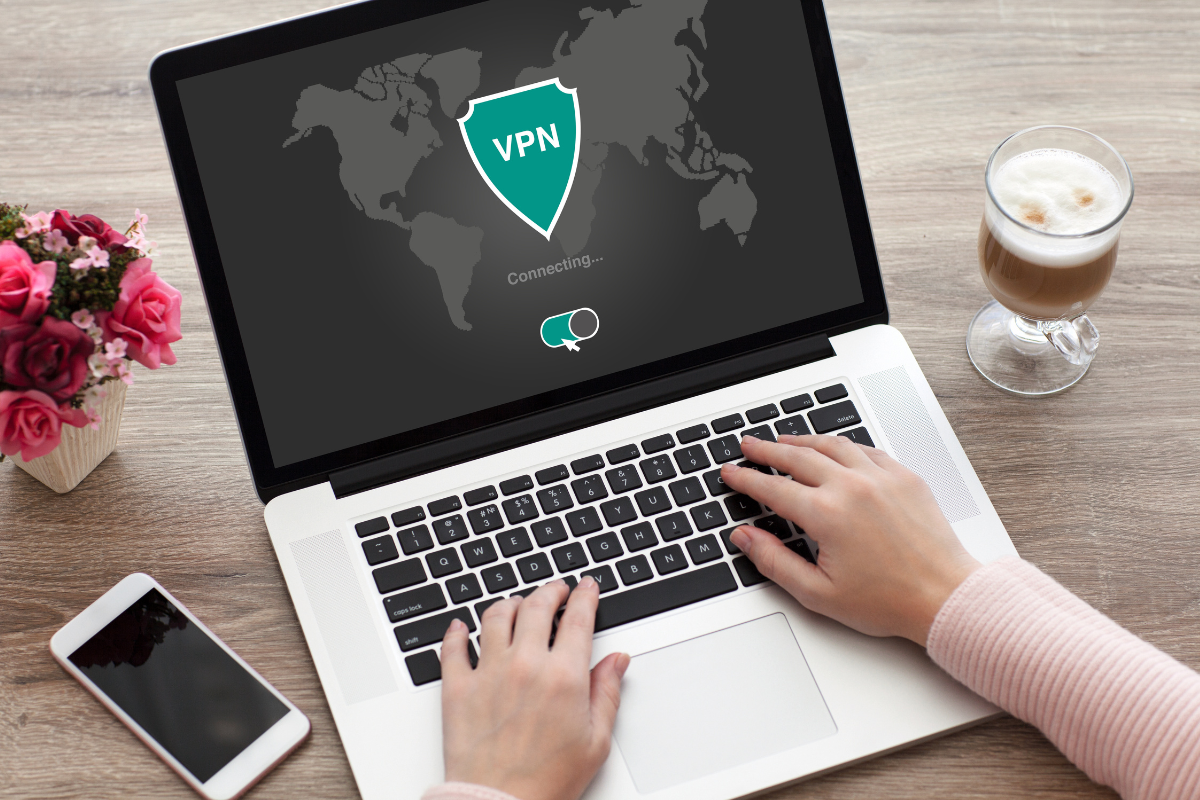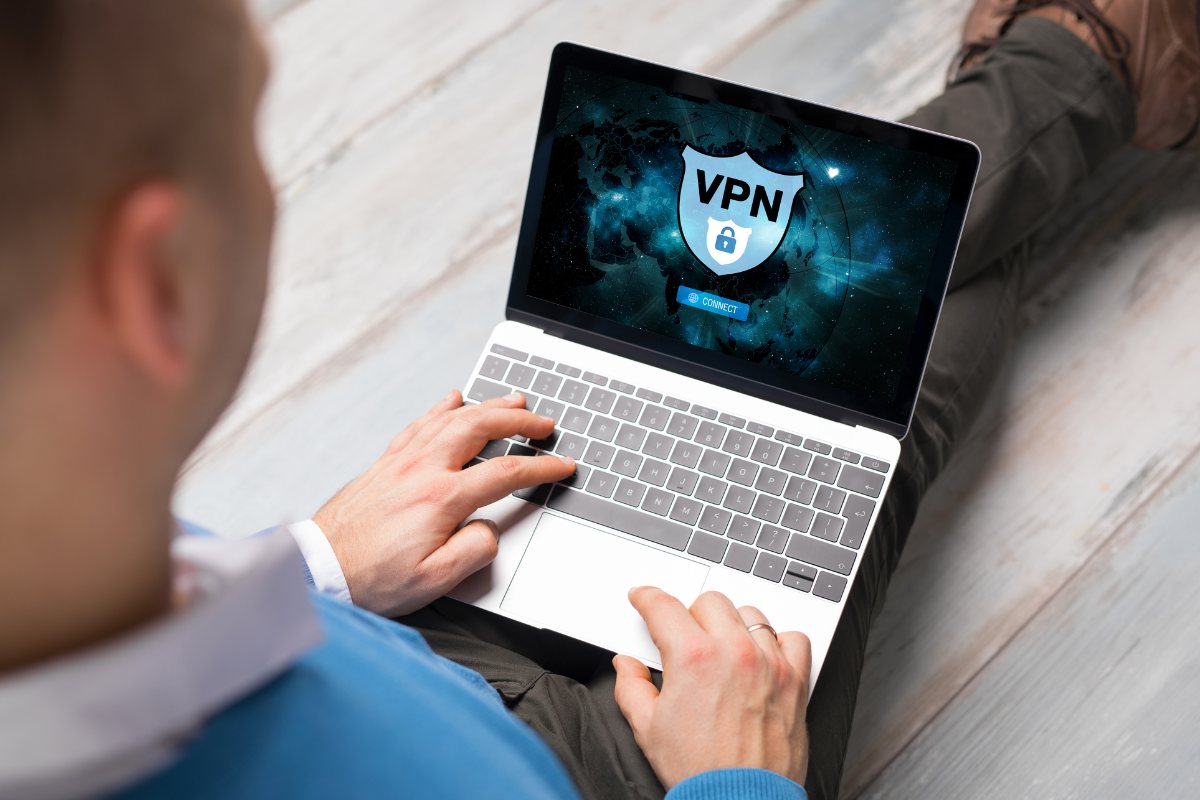In today’s digital age, where business communications traverse the globe in milliseconds, securing sensitive data has become paramount for companies of all sizes.
The increasing interconnectedness of global business landscapes amplifies the importance of robust cybersecurity measures.
Virtual Private Networks (VPNs) emerge as indispensable guardians in this digital realm, serving as a frontline defense against evolving cyber threats As businesses navigate the complexities of modern communication, this article aims to provide a comprehensive exploration of VPNs in the corporate world.
By shedding light on the risks posed by unsecured networks and elucidating the myriad benefits offered by VPNs, we delve into the intricate fabric of safeguarding sensitive data in an era where cyber resilience is non-negotiable.
The Need For Enhanced Security In Business Networks
Business networks are often targets for cyber-attacks, primarily because they hold valuable data ranging from trade secrets to personal information of employees and customers.

An unsecured network is akin to leaving the doors of a vault wide open, inviting risks such as data breaches, malware infections, and eavesdropping attacks.
The repercussions of such security breaches can be devastating, including financial losses, reputational damage, and legal consequences.
VPNs: The Shield In the Cyber Battlefield
Integrating a VPN solution into a business’s security strategy is more than just an added layer of protection; it’s necessary in the modern digital landscape.
For instance, a VPN Chrome Extension offers an efficient way to secure browser traffic, ensuring that all data transmitted via the web is encrypted and protected from prying eyes.
This tool is particularly useful for businesses that rely heavily on web-based applications and services.
By routing internet traffic through a secure, encrypted tunnel, VPNs provide a shield against cyber threats, ensuring that confidential business communications remain private and secure.
Encryption: The Core of VPN Security
The primary function of a VPN is to encrypt data transmitted over a network. This encryption converts sensitive information into a code that can only be deciphered with the correct key, thus keeping the data safe even if intercepted.
Businesses dealing with sensitive client data or proprietary information find this feature invaluable.
Remote Access: Bridging The Geographical Divide
Another significant advantage of VPNs is the ability to securely connect remote employees to the company’s network. This feature has become increasingly important with the rise of remote work and global teams.
A VPN ensures that employees working from different locations can access the company’s resources securely, without exposing the network to the risks associated with public Wi-Fi networks.
The Statistical Edge: VPNs in Numbers
The effectiveness of VPNs is not just theoretical. Studies and surveys have consistently shown a reduction in security breaches and cyber-attacks in businesses that employ VPN solutions.
For instance, a report by Cybersecurity Ventures predicted that cybersecurity damages would reach $6 trillion annually by 2021, highlighting the dire need for robust security measures like VPNs.
Enhancing Network Integrity With Server Security Measures
While VPNs effectively secure data communication within business environments, it is equally important to protect the servers where this data is stored and processed.
Implementing robust server security measures is crucial in safeguarding a company’s digital assets from unauthorized access and cyber threats.
This involves deploying advanced security solutions that can detect, prevent, and mitigate risks at the server level, forming a comprehensive defense strategy for the business’s digital infrastructure.
Fostering A Culture Of Cybersecurity Awareness
Beyond implementing technical solutions such as VPNs and server security measures, fostering a culture of cybersecurity awareness within the organization is crucial.
Regular training and education programs for employees can significantly reduce the risk of security breaches caused by human error, such as phishing attacks or password mismanagement.
By keeping the entire team informed and vigilant about potential cyber threats, businesses can create a more resilient and secure environment where technology and awareness work hand in hand for comprehensive protection.
An Indispensable Tool For Business Security
VPNs are not just a luxury but a critical component in the security infrastructure of any business.

They provide a secure and private channel for communication, protect sensitive data, and enable remote access to resources, all while being easy to implement and manage.
In an era where cyber threats are constantly evolving, a VPN is an essential tool for any business serious about securing its communications and protecting its assets.
Adapting To Evolving Threats: Continuous Improvement In VPN Technology
As technology advances, so do cyber threats. VPN providers are cognizant of this reality, leading to a continuous evolution of VPN technology.
Modern VPNs employ advanced encryption algorithms, secure protocols, and features like split tunneling to enhance user experience without compromising security.
Additionally, emerging technologies such as Zero Trust Architecture (ZTA) are being integrated with VPN solutions.
ZTA operates on the principle of “never trust, always verify,” requiring users and devices to authenticate themselves before gaining access to network resources.
This extra layer of authentication adds a robust defense against unauthorized access attempts.
Multi-factor authentication (MFA) is another vital component contributing to the enhanced security posture of VPNs.
By requiring users to verify their identity through multiple means, such as passwords, biometrics, or one-time codes, MFA adds an extra layer of protection, significantly reducing the risk of unauthorized access even if login credentials are compromised.
Privacy Compliance And Regulatory Standards
In the realm of cybersecurity, compliance with privacy regulations and industry standards is non-negotiable.
VPNs aid businesses in adhering to these regulations by safeguarding sensitive data during transmission.
The implementation of VPNs aligns with various data protection laws and regulations worldwide, ensuring that businesses remain in compliance and avoid legal repercussions.
Furthermore, the adoption of VPNs becomes increasingly relevant in industries handling healthcare, finance, or personal information where stringent regulations like HIPAA, GDPR, or PCI DSS govern data protection VPNs not only provide a technological solution but also demonstrate a commitment to privacy and data security, building trust among clients and partners.
Looking Ahead: Future Trends in VPN Adoption
In the coming years, VPN adoption is expected to rise substantially, driven by the widespread adoption of remote work and cloud-based services.
The persistent demand for secure communication channels will likely lead to future trends incorporating artificial intelligence for advanced threat detection, user interfaces that prioritize usability, and expanded support for a diverse range of devices.
Businesses, recognizing the importance of robust cybersecurity measures, are likely to embrace these advancements in VPN technology.
In Conclusion
As businesses navigate an ever-evolving technological landscape, the trajectory of VPN adoption appears upward.
The surge in remote work and reliance on cloud services underscores the enduring need for secure communication.
Anticipated trends involve the integration of artificial intelligence for advanced threat detection, enhanced user interfaces, and broader device support.
Therefore, the journey into the realm of VPNs extends beyond initial implementation, requiring an ongoing commitment to technological evolution, privacy adherence, and proactive anticipation of future trends for comprehensive cybersecurity.